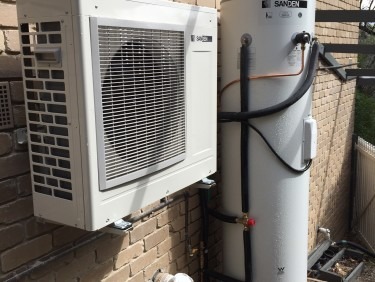Getting a solar system is one of the best ways to take control of your energy usage and reduce your power bills, but many first-time solar owners don’t realise that how you use your solar power makes all the difference to the savings you’ll see on your bill.
The key is to self-consume as much of your solar power in your home as possible, rather than exporting it all to the electricity grid. Yes, you’re paid a feed-in tariff for the electricity you export, but for new solar owners that feed-in tariff is much less than the rate you pay for the electricity you buy from your energy company.
This means exporting your solar power now for a low price and buying electricity back from your energy company later for a high price isn’t very economical.
The best way to maximise your use of solar power is to invest in a solar battery. A battery allows you to store any excess solar power that isn’t being used in your home for use later on when the sun has gone down. However batteries are still fairly expensive and don’t make financial sense for everyone yet.
The more affordable alternative: hot water heat pumps.
Hot water accounts for around a quarter of the energy used in the average Australian home. That’s a huge chunk of your power bill so it pays to do it in the most efficient way possible. That’s where hot water heat pumps come in.
Essentially, they work like reverse fridges – where fridges pump hot air out of the fridge and into the outside air, heat pumps absorb heat from the outside air and convert it into hot water.
Because heat pumps use electricity to simply move heat from the outside air into the water tank, they can use up to 4x less electricity than traditional electric resistance hot water systems (which use electricity like a kettle to heat the water.) This alone means heat pumps are more efficient and will deliver savings on your energy bill.
However if you have a solar system, heat pumps can go one better.
Most heat pumps have a timer setting. The Sanden Eco Plus Heat Pump, for example, has a timer which can be set to run when your solar system is generating electricity. This means you can shift almost all of your hot water energy usage (that whopping 25% of your bill) to run on solar power rather than electricity you have to buy from your energy company.
And because heat pumps use less energy than traditional electric hot water systems, you should have enough excess solar power available to run your heat pump even if you have other appliances running at the same time, or have a relatively small solar system.
In this way, a heat pump is like a battery. It uses your solar power during the day and stores it in the form of hot water to be used when needed later on.
Australia’s best heat pump: The Sanden Eco Plus.
With industry leading warranties, one of the most efficient hot water heat pumps on the market is the Sanden Eco Plus Heat Pump.
As Melbourne’s most experienced accredited retailer and installer of Sanden heat pumps, Solar specialist and Sanden can save you up to 80% on your hot water bills.
So whether you’re looking for a quality hot water heat pump for your new home, or looking to replace an old inefficient electric or gas hot water system, get in touch today for a chat and a free, no-obligation quote.
